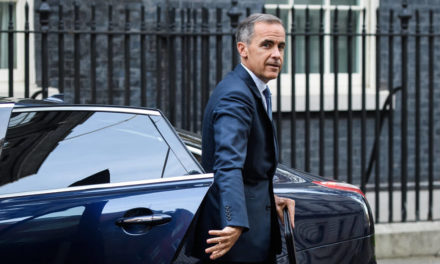The credit rating for the United Kingdom’s government debt was downgraded from stable to negative by global ratings agency Fitch on Wednesday, October 5th. Company representatives cited how the Truss Administration’s substantial yet largely unfunded fiscal package may lead to higher fiscal deficits in the near future when they lowered the country’s rating.
Fitch’s announcement comes on the heels of fellow financial firm Standard & Poor’s own downgrade of the British economy following the release of the government’s fiscal statement on September 23rd. As it stands, the AA- rating Fitch accorded the UK is only slightly lower than that issued by S&P.
Key points of contention in the September 23 statement include Finance Minister Kwasi Kwarteng’s announcement that there would be $51 billion in unfunded tax cuts, massive fuel and energy subsidies, and other measures geared towards sparking economic growth. However, the need for extra borrowing has financial professionals protesting.
Fitch analysts added that a number of factors have negatively impacted the financial markets’ confidence in the new Parliament recently convened by Prime Minister Liz Truss. The lack of independent budget forecasts is one, as the direction the government wants to take regarding the economy remains unclear.
Likewise, the new government’s recent clash with an anti-inflationary strategy proposed by the Bank of England has brought the credibility of the former’s policy framework into serious question with rating bodies.
At the same time, the British pound fell to record lows against the US dollar, a development which prompted the country’s central bank to take measures for market stabilization.
Responding to the Backlash
As of Monday, October 3rd, Kwarteng has clarified part of what he said regarding tax cuts, particularly that about decreasing income taxes for those in the top 1% of earners. The Minister stated that he would not push through with those specific tax cuts, noting that it would cost the government approximately two billion pounds annually.
However, this retraction or correction does not hold water with Fitch analysts, who have not backed down from their initial assessment.
According to a statement issued by the firm, while the government has backtracked the removal of the 45-pence top rate tax, its weakened political capital may adversely impact its credibility and substantially decrease support for its fiscal strategies.
The Fitch statement added that it forecasted the country’s general government deficit may hit 7.8% of its gross domestic product as 2022 ends and 8.8% next year. However, the firm added that general government debt may be as high as 109% of the GDP by 2024.















